TermIt dictionary management service
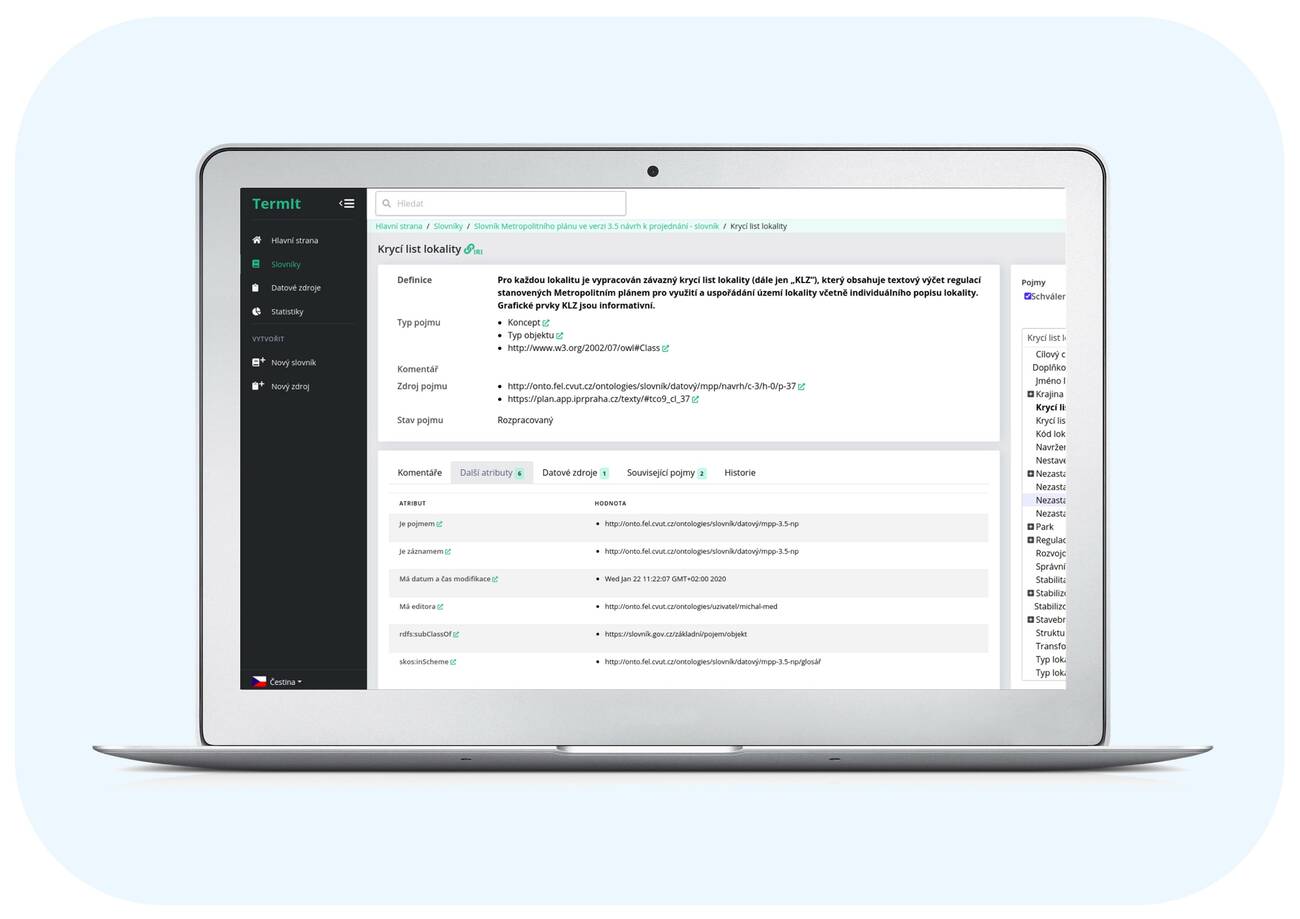
Cleaner of terms and internal documentation. Creation of dictionaries of meaning, annotation of data sources, their content and search.
Are you investing tens of percent of your costs in data creation and maintenance, yet you find that the data is "drowned" or often misinterpreted? Or would you just like it to be linked to your documents or legislation and do not know how to make it work effectively?
We have repeatedly encountered the problem of inaccurate descriptions of data and other sources, leading to their misinterpretation, poor search and orientation in them when working with Czech public administration organizations, as well as with commercial companies.
In order to have a functional link, it has proved necessary to replace keywords with dictionary terms linked to legislation or internal regulations. Thus, for example, instead of the keyword building, we would use the term building (according to Act No. 406/2000 Coll. on Energy Management) to index the dataset on heated buildings. Why? Because unlike the term building (according to Act No. 256/2013 Coll., the Cadastral Act) it does not refer to bus stops or unheated warehouse halls. Moreover, from these terms we can create a "network" linking the concepts by means of precise meaning links. We then use this for more accurate searches. And so we can make it easier to answer questions such as the following:
-
I received an unknown document. What terms does the law talk about? What laws does it refer to?
-
I have received a document about buildings. Did the author mean buildings according to Act No. 256/2013 (Cadastral Act) or according to Act No. 406/2000 Coll. on energy management ?
-
Can a bus stop be considered a building?
-
I have a lot of datasets, but how do I find the one I need?
-
I want to find out which datasets I can link to my dataset to get specific information.
What problems do it solve for its customers?
We created TermIt software that walks you through the entire process above, from creating a meaning dictionary to using it to annotate data sources (datasets, documents, etc.), their contents, and the actual search. And not only that, it will provide you with a "cleaner of terms and internal documentation". It will organize your knowledge to better manage your data and make it understandable and searchable. This will give your organization greater independence from experts who are proficient in specific terminology, and you will not be afraid to let them go on vacation.
We are working closely with the Institute of Planning and Development of the City of Prague to develop the entire solution. We are testing the conceptualisation tool itself with other public administration organisations.
Product development phase
We have completed the key parts of the TermIt system including:
-
creation of formal dictionaries,
-
linking dictionary terms to legislation and other documents,
-
an annotator and data search engine using the created dictionary terms.
We are now working on streamlining the user interface, and on other improvements - for example, creating a dashboard for the dictionary editor, and creating an interface for a tool for publishing the dictionary for the public, including support for public discussion of individual terms. All of this is optional, of course - not everyone is comfortable with it.
How to commercialise
In addition to consulting and training, we then offer the TermIt system as a hosted service in several commercial plans. For basic use, we offer commercial support for the open-source version of the TermIt system. For advanced users, we offer additional features (e.g., more advanced text analysis, or annotation and semantic search of data sources) beyond the open-source version. We are also open to other ways of collaboration. Let us know.
Technical specifications
The solution is based on formal ontologies published according to Linked Data principles and using RDF, OWL, SKOS and SPARQL technologies. This will ensure easy distributionand integration with existing ontologies.
TermIt itself is a modern Java-based web application with a client side written in JavaScript. TermIt provides a REST API for integration with your search engine.
In addition to the hosted service, you can also run TermIt on your own server.
Open-source version
- creation and management of dictionaries and terms
- publishing dictionaries as linked data,
- basic analytical and statistical indicators of terms and dictionaries - number of dictionaries, number of terms in a dictionary, distribution of terms by ontological types
- basic text analysis (e.g. keyword search) - retrieval of terms from an existing dictionary in a new document
- ontological types of concepts (UFO - object/event/property/relationship) + links between them
OPPPR (closed-source) version
- advanced textual analysis (e.g.. searching key phrases in documents, their prioritization),
- management of arbitrary data sources (e.g.. documents),
- annotation of digital resources with dictionary terms - managed digital resources can be annotated with terms from one or more dictionaries and searched using these annotations
- integration with SSO providers - so far GitHub
- Facebook comments for external users
- linking a term to the origin of its definition in a document
- definitional dependencies of concepts (a concept occurs in the definition of another and vice versa), dependency through ontological relationships
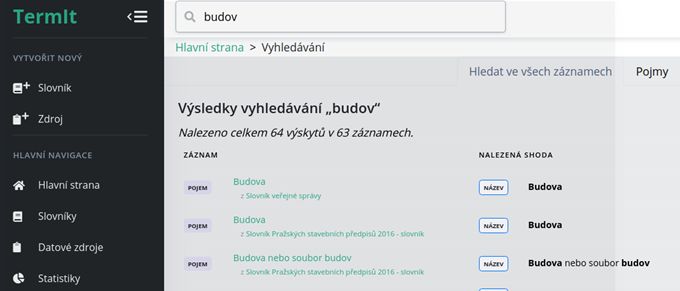
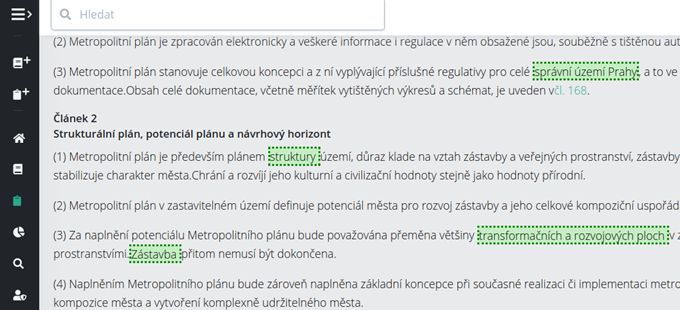
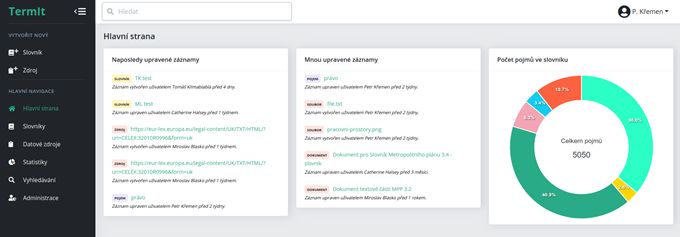
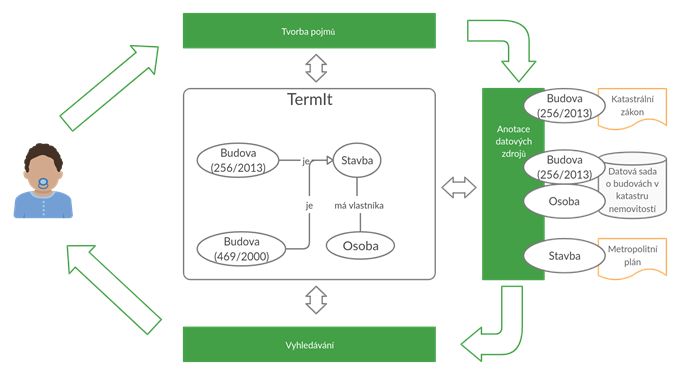
Are you interested in this technology?
V případě zájmu o naše technologie, produkty a služby kontaktujte telefonicky nebo e-mailem koordinátora pro transfer technologií:

